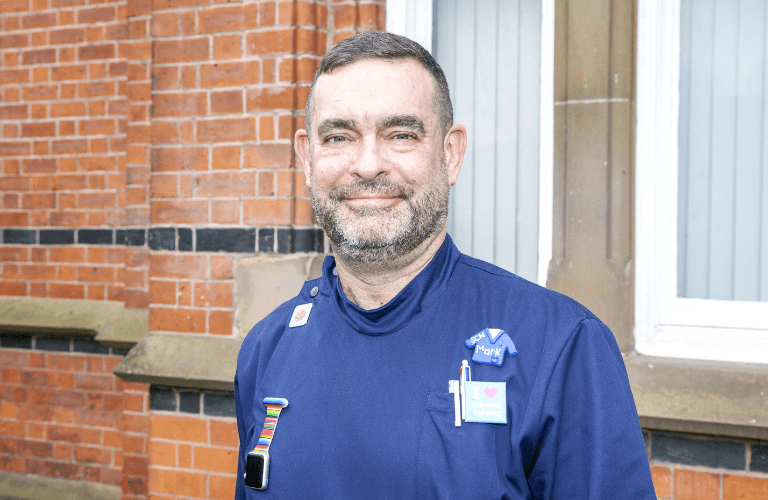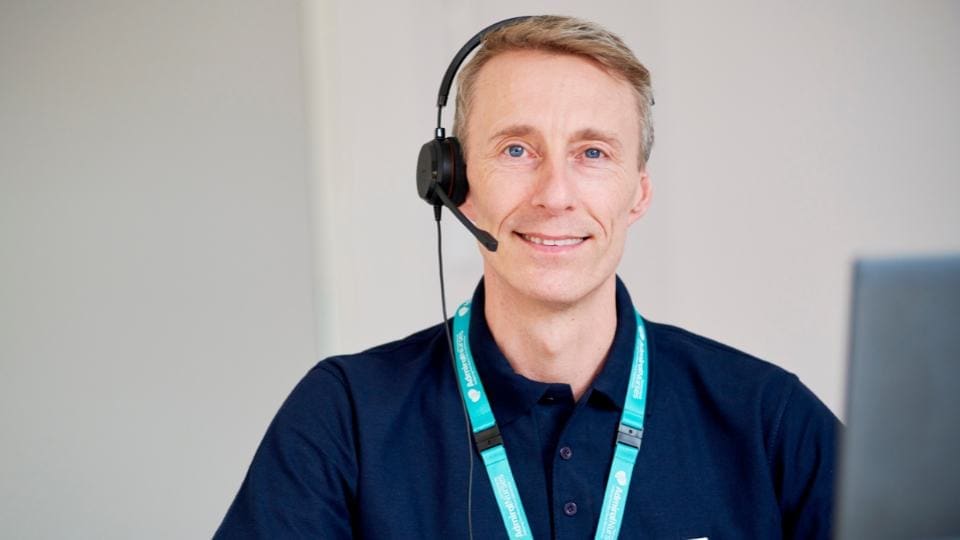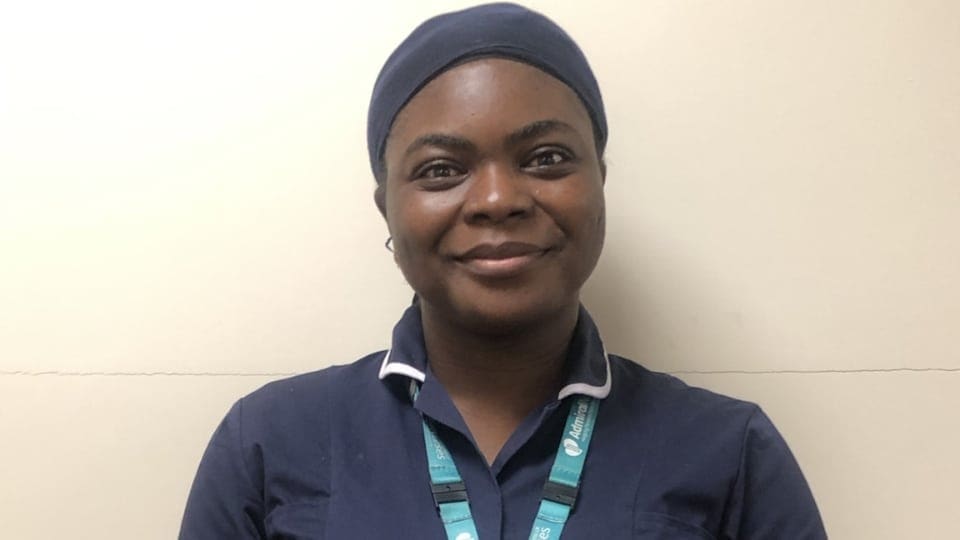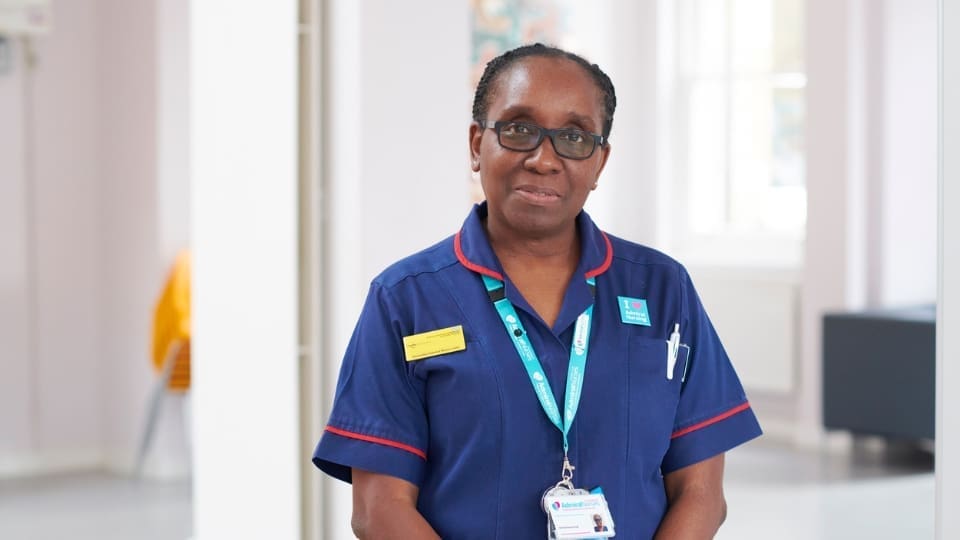
Getting to know Admiral Nurse Mark Oakley
Admiral Nurse Mark shares how he is teaching hospital colleagues more about the effects of dementia, so they can provide better support to their patients with the condition.

Back in the 1970s, when I was a child, my great-grandmother had memory problems, but my family never used the word dementia. She often told stories about old family holidays but would mix up the names of places and relatives. Some of my family corrected her, criticised her and even told her off, which upset her. But I just listened and encouraged her because she really enjoyed reminiscing about past happy memories.
As a child I knew that I wanted to work with people when I grew up. After school I did some voluntary work and then studied Mental Health Nursing at the University of Brighton. During my nurse training in the 1990s I really enjoyed my placement on a local mental health ward for people with dementia, and I also met an inspiring specialist dementia nurse there.
I discovered that I loved working with people living with dementia and supporting their families. I also started a carers’ support group there whilst I was still a student nurse. I knew that I had found my calling, so when I qualified, I began working on that ward full-time.
I knew that there were specialist nurses for cancer care, but I wondered if there were specialist nurses for dementia. I then read about Admiral Nurses but at the time, there were not many around the UK and none in my area in East Sussex.
I really wanted to be an Admiral Nurse, so over the years I developed my knowledge and skills. I took dementia courses at university and gained experience working in the NHS in a wide range of dementia-related roles including in a community mental health team, memory assessment service, care home support and mental health liaison, and then as a Dementia Lead for my local acute hospitals trust.
During this time my father was diagnosed with Alzheimer’s disease, which made my connection to dementia feel a lot more personal. My own experience increased my understanding of how dementia affects families.
In 2020, Dementia UK advertised a new role in East Sussex to develop a new Admiral Nurse clinic service, supporting families living with dementia through local GP surgeries. I got the job and loved setting up the new service.
I now work for Dementia UK’s Core Clinical Services, covering the national Helpline and phone and video appointments. We support hundreds of carers every week, advising them on a wide range of concerns and challenges.
In my experience, public awareness of dementia has improved over the last 40 years, but in many areas of the UK dementia support services are very limited and often difficult to access, with long waiting lists. Many families face long waits – sometimes several years – for an initial memory service assessment. This is too long to wait for families who are concerned about a relative who may have dementia and who need specialist support.
I love being an Admiral Nurse, knowing that I can use my skills and knowledge to make a real positive difference for families living with dementia. Whilst it can be tough sometimes, I love my job and can’t think of anything more rewarding that I could be doing.

Admiral Nurse Mark shares how he is teaching hospital colleagues more about the effects of dementia, so they can provide better support to their patients with the condition.

Admiral Nurse Safia reflects on how she supports families from diverse communities and what Black History Month means to her.

Roxanne Viera-Moreno, Lead Admiral Nurse at Barking, Redbridge and Havering University Hospitals NHS Trust, reflects on what Black History Month means to her.